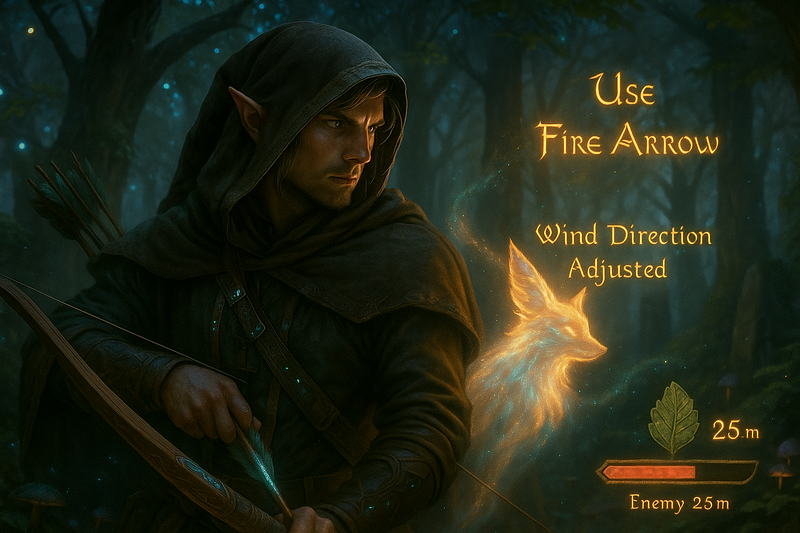Art /Entertainment
Future of Reality TV: Trends and Innovations in the Industry
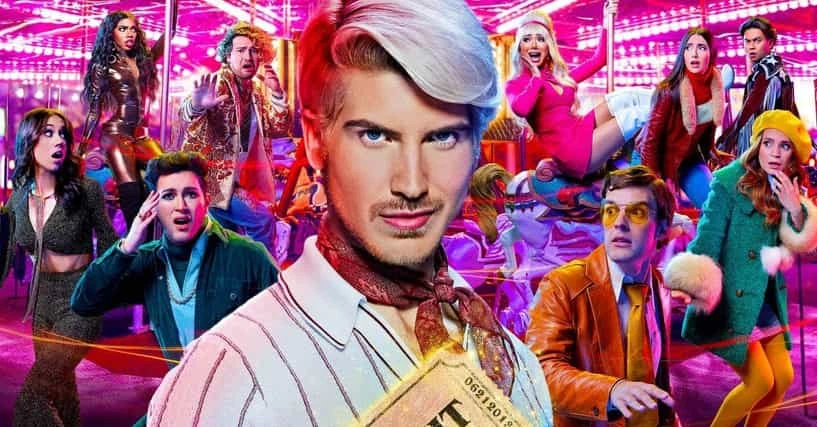
Introduction
Reality TV has come a long way since its first emergence in the 1990s. It started as a simple concept of showcasing unscripted moments from real life but has since evolved into a massive genre of entertainment, generating huge audiences, viral moments, and millions of dollars in revenue. Reality television shows like Big Brother, The Bachelor, and Survivor became household names and dominated TV ratings. Today, reality TV continues to be one of the most prominent genres on both traditional television and streaming platforms.
As we look toward the future, reality TV is not only adapting to the demands of audiences but also pushing boundaries with new trends and innovations. This article explores how the reality TV landscape is evolving, what trends are emerging, and what innovations are likely to shape the future of this ever-growing industry.
The Rise of Streaming Platforms and Their Impact on Reality TV
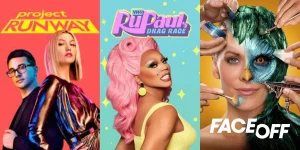
Image by: Yandex.com
One of the most significant trends impacting reality TV today is the rise of streaming platforms like Netflix, Hulu, and Amazon Prime Video. With traditional TV networks facing stiff competition, these streaming giants are increasingly producing their own reality shows, leading to a shift in how content is delivered and consumed.
These platforms offer viewers the freedom to watch reality shows on-demand, at their own pace. This shift toward streaming has led to the development of shows that break the traditional mold, featuring a diverse range of contestants and exploring unique formats that might not be feasible for network television.
Analysis Table: Streaming Platforms and Reality TV
| Platform | Notable Reality Shows | Impact on Reality TV |
|---|---|---|
| Netflix | The Circle, Queer Eye, Selling Sunset | Revolutionizing global reach and binge-watching experience. |
| Hulu | The Kardashians, Love Island | Offering diverse content and catering to niche audiences. |
| Amazon Prime Video | The Pack, Making the Cut | Bringing high-production-value reality shows to wider audiences. |
The Benefits of Reality TV

Image by: Yandex.com
Reality TV offers several benefits, both for viewers and the industry. For viewers, it provides entertainment that is often quick to watch and easy to follow. These shows also offer a glimpse into different lifestyles, cultures, and situations that people might not otherwise experience. For the industry, reality TV is relatively inexpensive to produce compared to scripted shows, which makes it a favorite for networks and streaming platforms. Additionally, it can create stars overnight, turning regular people into celebrities and helping build a loyal audience.
The Role of Reality TV in Entertainment
Reality TV plays a major role in the entertainment industry today. It provides a diverse range of content that appeals to a wide audience, from cooking shows to dating competitions and survival adventures. Reality TV also has the power to reflect societal trends and issues, like love, family, or social dynamics. It often brings important conversations to the forefront while keeping viewers entertained. Moreover, it has become a global phenomenon, with many shows having international versions that resonate with different cultures.
Increased Diversity and Representation in Reality TV
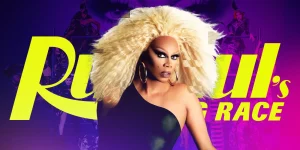
Image by: Yandex.com
In the past, many reality TV shows faced criticism for their lack of diversity and inclusive representation. However, recent years have shown a clear shift toward showcasing more diverse contestants from different backgrounds, ethnicities, and experiences. This shift is not only a reflection of changing societal norms but also a response to audience demand for more representation.
Shows like RuPaul’s Drag Race and The Circle have led the charge in diversifying reality TV. The future of reality television will likely continue this trend, with more inclusive casting and diverse storylines aimed at reflecting the global society we live in today.
Innovation in Formats and Storytelling

Image by: Yandex.com
Reality TV shows are moving beyond traditional formats, incorporating unique storytelling methods and innovative concepts to engage viewers. For example, The Circle introduced the idea of contestants interacting through a social media app while remaining isolated from each other, creating a suspenseful and dramatic experience for both contestants and audiences.
Additionally, hybrid shows that mix elements of scripted television with unscripted reality, such as The Masked Singer, are becoming more popular. These formats blend entertainment and suspense, ensuring that the audience remains intrigued week after week.
The Influence of Social Media on Reality TV
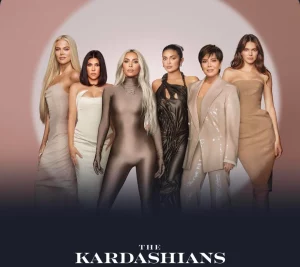
Image by: Yandex.com
The role of social media in shaping reality TV has been significant in recent years. Shows that encourage fan engagement through voting, commenting, and sharing content have become highly successful. Platforms like Instagram, TikTok, and Twitter allow reality stars to maintain a connection with fans, further extending the life of their shows beyond the TV screen.
Additionally, social media influencers have blurred the lines between reality TV contestants and internet celebrities. Many stars from reality TV, such as Kim Kardashian, have built their brands primarily through social media, leading to a new model where reality stars can transition seamlessly into broader entertainment industries.
Virtual Reality (VR) and Augmented Reality (AR): The Future of Reality TV?
As technology continues to advance, reality TV producers are beginning to explore virtual reality (VR) and augmented reality (AR) as ways to bring new dimensions to the genre. Imagine a reality competition show where the set is entirely virtual, or viewers can experience an immersive 360-degree view of the contestants’ interactions.
Though still in their early stages, VR and AR have the potential to transform reality TV into a fully interactive experience, making audiences feel as though they are part of the action.
The Impact of AI and Data Analytics on Reality TV
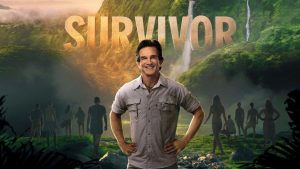
Image by: Yandex.com
Artificial intelligence (AI) and data analytics are also beginning to play a role in the development of reality TV shows. By analyzing audience behavior, preferences, and reactions to different elements of a show, producers can fine-tune their content to maximize viewer engagement. AI can also be used to create more personalized experiences for viewers, such as recommending specific shows based on their watching habits.
This data-driven approach is not only changing how reality TV shows are produced but also how they are marketed to different audience segments.
Challenges Facing Reality TV

Image by: Yandex.com
Despite its popularity, reality TV also faces challenges. One major issue is criticism about how shows can manipulate the situations or contestants to create more drama for viewers. Some argue that this makes the content less authentic. There are also concerns about the pressure placed on contestants, who often face public scrutiny and lasting fame or infamy. Additionally, reality TV sometimes struggles with maintaining long-term appeal, as certain formats can feel repetitive after a while.
The Global Reach of Reality TV

Image by: Yandex.com
Another reason reality TV is so popular is its global reach. Many reality shows are adapted for different countries, allowing the format to travel well across cultures. For example, Big Brother and The Bachelor have international versions, each with its own local twists. This ability to adapt and resonate with people from different backgrounds has made reality TV a worldwide phenomenon. Shows like The Amazing Race and The Voice have become global brands, allowing networks to reach a massive international audience.
The Future of Reality TV
The future of reality TV looks bright, with several exciting trends emerging. As technology advances, we may see more interactive and immersive experiences, such as shows that allow viewers to influence outcomes. Streaming platforms will continue to be a key part of the reality TV world, offering more diverse and on-demand content. There’s also a growing focus on diversity and inclusion, with more shows aiming to reflect a broader range of experiences and backgrounds. As audiences change, reality TV will likely keep evolving to keep them engaged with fresh and innovative formats.
The Future of Reality TV: What’s Next?
As we look ahead, the future of reality TV seems bright, with the genre continuously evolving to meet the needs of a digital-savvy audience. Some trends to watch for include:
- Hyper-personalization: Using data and AI to create shows that cater to very specific niches and viewer preferences.
- Increased Interactivity: Reality TV will become more interactive, allowing audiences to vote, make decisions, and even participate in the show.
- Globalization: More shows are likely to follow in the footsteps of The Great British Bake Off, which has become an international sensation, leading to localized versions in other countries.
- Sustainability Themes: As environmental issues become more important, we might see reality shows focused on sustainability challenges and eco-friendly lifestyles.
Analysis Table: Future of Reality TV Trends
| Trend | Description | Impact on the Industry |
|---|---|---|
| Streaming Platforms | Growth of on-demand reality TV content on platforms like Netflix and Hulu. | Increased accessibility and global reach for reality shows. |
| Diversity & Representation | More inclusive casting and diverse storylines. | Reflects societal shifts and improves audience engagement. |
| Innovative Formats | Hybrid and interactive formats blending scripted and unscripted elements. | Offers unique viewing experiences and broadens audience appeal. |
| Social Media Integration | Shows integrating fan interaction and influencer culture. | Boosts engagement and creates longer-lasting fame for contestants. |
| Virtual Reality (VR) and Augmented Reality (AR) | Emerging technologies are providing immersive experiences. | Potential to create entirely new dimensions in reality TV. |
Comparative Table: Traditional vs. Innovative Reality TV Formats
| Traditional Reality TV Formats | Innovative Reality TV Formats |
|---|---|
| Contestants compete for a single prize. | Interactive formats, e.g., The Circle, where contestants interact through technology. |
| Focus on physical and mental challenges. | Incorporating elements of drama, mystery, and even scripted storylines, like in The Masked Singer. |
| Contestants live together, isolated from the outside world. | Social media-driven reality shows that allow viewers to influence outcomes. |
Conclusion
Reality TV is no longer confined to simple competitions or social experiments. It’s becoming an innovative space where technology, diverse representation, and audience interaction are creating entirely new viewing experiences. Whether it’s the impact of streaming platforms, social media, or emerging technologies like VR, the reality TV genre is continuously evolving, offering fresh and engaging content that resonates with viewers worldwide.
The future of reality TV promises to be exciting, with trends pointing toward more immersive, personalized, and inclusive experiences for audiences. As producers continue to experiment with new formats, technologies, and engagement strategies, it’s clear that reality television will remain a dominant force in the entertainment industry for years to come.
Art /Entertainment
Beyond the Big Screen: Exploring the Role of Music in Video Games
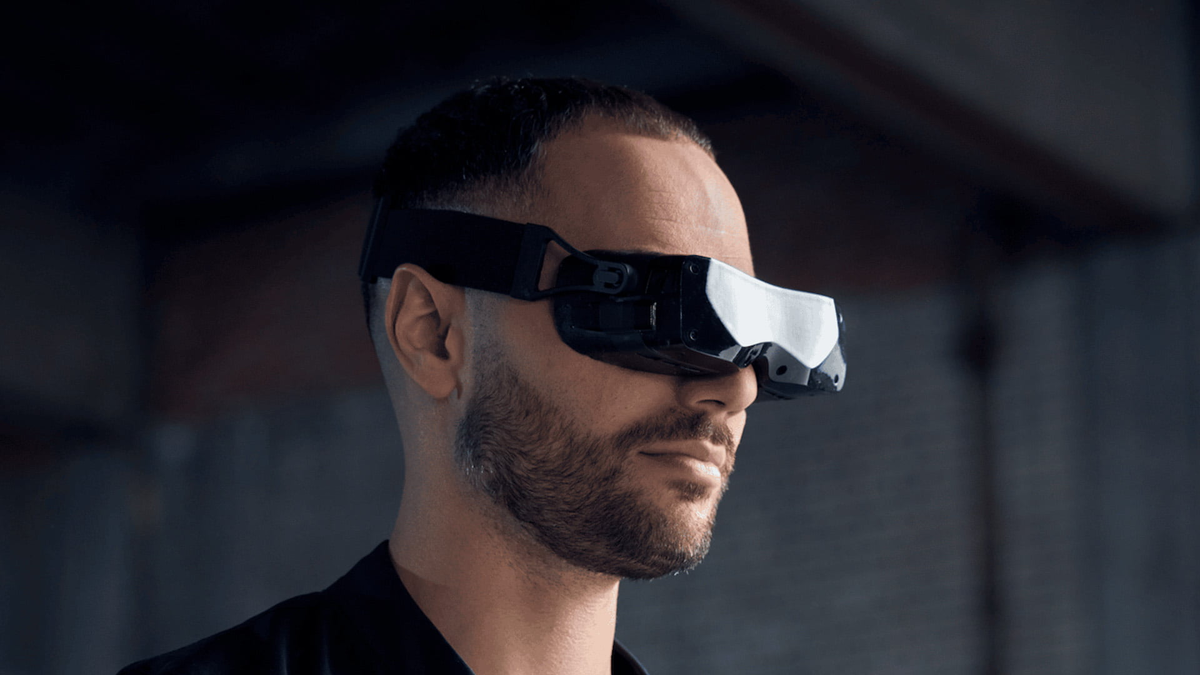
Video games have come a long way since their inception in the 1970s. From simple graphics and bleepy-bloopy sound effects, video game developers have now elevated the gaming experience to a whole new level. But beyond stunning visuals and captivating gameplay lies an essential component that often gets overlooked – music. Music has been an integral part of video games from the very beginning, setting the tone for each level or scene, evoking emotions in players, and enhancing their overall gaming experience. Join us as we delve into the fascinating world of music in video games, exploring its different types and how it plays a significant role in both indie and popular titles alike!
The Relationship Between Music and Games
Music and games are two art forms that go hand in hand. The right music can make or break a game, enhancing the overall experience for players. It helps set the mood and tone of each level or scene, creating an emotional impact on players. Moreover, it can also improve focus and concentration by providing auditory cues to players.
Music is an essential part of video games because it sets the pace for gameplay. Fast-paced music amps up action sequences, while slower tracks help build tension during critical moments in a game. Music not only adds to immersion but also acts as a storytelling device for developers.
The relationship between music and games goes beyond mere accompaniment; they complement each other perfectly. In many cases, gamers identify with game soundtracks just as much as with their favorite songs on the radio. Game soundtracks have even made their way onto mainstream album charts!
The role of music in video games cannot be overstated. Its importance lies not only in its ability to enhance gameplay but also its power to evoke emotions within players that extend far beyond gaming itself!
The Different Types of Music in Games
Music in video games has evolved significantly over the years, with many different types of music being used to enhance the gaming experience. One popular type is classical music, which can be heard in games like “Civilization” and “Assassin’s Creed.” This type of music adds a level of sophistication and elegance to these games.
Another common type of music found in video games is electronic or techno music. Games such as “FIFA” and “Need for Speed” often use this style of music to create an energetic atmosphere that matches the intensity of gameplay. The fast-paced beats help players feel more engaged and focused on the game.
In contrast, some games use ambient or atmospheric soundscapes to create a sense of immersion for players. These sounds are often minimalist and ethereal, designed to transport players into another world entirely. Examples include games like “Journey” and “Limbo.”
There are also many narrative-driven games that rely heavily on vocal tracks or original scores created specifically for the game. These types of soundtracks add emotional depth to a story-rich game like “The Last Of Us.”
There are countless ways that developers can incorporate great musical compositions into their video games — from classical pieces to electronic dance tunes — each serving its unique purpose in enhancing gameplay experiences for gamers around the world!
Music in Indie Games
Indie games have become increasingly popular in recent years, with a growing number of developers creating unique and innovative games that offer players a fresh experience. One aspect that indie game developers often pay special attention to is the music.
Unlike big-budget commercial games, indie game developers don’t always have access to large budgets for expensive orchestral scores or licensed tracks from popular artists. Instead, they often rely on their own creativity and resourcefulness to come up with original compositions that perfectly complement the gameplay.
One example of an indie game with exceptional music is “Hollow Knight”. The soundtrack was composed by Christopher Larkin, who created hauntingly beautiful melodies that captured the essence of the game’s mystical world. Another example is “Undertale”, which features memorable tunes composed by Toby Fox himself.
Music plays a crucial role in enhancing immersion and emotional impact in video games, regardless of budget size or popularity. In many cases, it can even be argued that some indie game soundtracks are more impactful than those found in AAA titles because they’re able to convey a sense of passion and creativity not usually seen elsewhere.
Music has been used creatively as an integral part of storytelling within most Indie Games pushing them beyond just mere entertainment but also towards artistic expressionism
Music in Popular Games
Music in Popular Games:
Music plays an essential role in popular games. It adds a layer of immersion and engagement that helps players get lost in the game’s world.
One great example is the music from the legendary game franchise, The Legend of Zelda. From its iconic main theme to its combat music, every piece brings out the magic and adventure of exploring Hyrule.
Another popular game with memorable music is Final Fantasy VII. Its soundtrack is composed by Nobuo Uematsu and features unforgettable themes like “Aerith’s Theme” or “One-Winged Angel.”
But it’s not just older games that have amazing soundtracks. Recently released titles like Red Dead Redemption 2 also showcase fantastic musical scores that enhance the Western atmosphere of the game.
In fact, some games even use licensed music to set a specific tone for their story. Take Grand Theft Auto V, for example, which has over 240 licensed songs across its various radio stations.
Popular games often have well-crafted soundtracks that elevate both gameplay and narrative elements alike.
Conclusion
The role of music in video games cannot be underestimated. It adds a whole new dimension to the gaming experience and helps immerse players into the game’s world. From indie games to popular franchises, music has been used to great effect in enhancing gameplay and storytelling.
As technology advances, we can expect even more complex and interactive soundtracks that adapt based on player decisions or surroundings. And with virtual reality becoming more mainstream, we can only imagine how immersive and impactful music will become in these new environments.
So next time you sit down to play your favorite game, take a moment to appreciate the work that went into creating its soundtrack. You might just find yourself enjoying the game even more because of it!
Art /Entertainment
Upcoming Titles with Gaming News Network’s Exclusive Previews

Introduction
Gamers, get ready to level up your anticipation. Gaming News Network has secured exclusive previews of some of the most thrilling upcoming gaming titles set to launch this year and beyond. From sprawling open‑world adventures to fast‑paced shooters and innovative indie gems, our hands‑on previews reveal what you need to know: story beats, gameplay mechanics, visuals, and release dates. Whether you’re a casual player or a hardcore enthusiast, these early insights will help you plan your next big purchase and get ahead of the competition. Let’s dive into the first looks that have the gaming community buzzing.
1. Eclipse of Titans – A Mythic Open‑World Adventure
1.1 Setting and Storyline
Eclipse of Titans places you in a land where gods and mortals clash for supremacy. You play as an exiled warrior seeking redemption by forging alliances with ancient deities and battling titanic creatures. In our exclusive preview, we explored the ruined city of Aethra and witnessed dynamic weather shifts—like god‑summoned storms—that change enemy behavior and open new traversal paths.
1.2 Gameplay Mechanics
- Combat System: Blends fast melee combos with strategic god‑powered abilities. We tested the “Zeus’s Bolt” skill to stun armored foes and watched how chaining elemental powers unlocks hidden weaknesses.
- Exploration: A massive map filled with verticality—climb cyclopean statues and glide between mountain spores. Frequent side quests tie into main lore, rewarding you with divine blessings.
- Crafting & Progression: Collect celestial shards to upgrade armor and craft rare weapons. Our preview showed a nuanced skill tree where investing in “Divine Favor” unlocks unique dialogue options that can change quest outcomes.
1.3 Visuals and Performance
Running on the latest Unreal Engine, Eclipse of Titans impressed with photorealistic foliage, volumetric lighting in deep caverns, and fluid character animations. Frame rates held steady at 60 fps on high‑end PCs, with HDR providing vibrant sunsets that cast long shadows across marble ruins.
1.4 Release Date and Platforms
Set to launch on October 15, 2025, Eclipse of Titans arrives on PlayStation 5, Xbox Series X|S, and PC. Pre‑orders include a deluxe digital artbook and a god‑mode trial buff for early adopters.
2. Velocity X – The Return of Futuristic Racing
2.1 Game Concept
Velocity X resurrects the high‑octane racing of the late 90s, but with a futuristic twist. Hovercrafts zip over neon tracks suspended above megacities. In our hands‑on session, we sampled the “Neon Skyline” circuit, dodging traffic drones and using magnetic boost rails for insane speed bursts.
2.2 Controls and Physics
- True-to-Life Handling: Each hovercraft responds to subtle input; we felt the drift as we braked into tight corners.
- Boost Management: Overusing boosts overheats your engine, forcing strategic play. We tested a new “Cryo‑Brake” that cools systems for a quick follow‑up surge.
- Collision System: Ramming opponents is possible but costly—damaged armor reduces handling until repaired at pit stops.
2.3 Multiplayer Features
Velocity X offers 12‑player lobbies with ranked leagues and seasonal championships. We joined a test race and noted minimal lag, thanks to dedicated servers and peer‑to‑peer fallback. Custom livery tools let you upload your own decals for unique team colors.
2.4 Release Details
Launching on December 5, 2025, Velocity X comes to PC, PS5, and Xbox Series X|S. A free trial weekend is set for November, giving you a taste of three tracks and two hovercraft classes.
3. Solitude: Echoes of the Deep – An Atmospheric Survival Horror
3.1 Premise and Setting
Descending into the abandoned underwater research facility “Solitude,” players uncover dark secrets and avoid nightmarish creatures. Our preview explored Sector 7, a flooded laboratory illuminated by flickering emergency lights and crawling with bio‑engineered horrors.
3.2 Horror Mechanics
- Sound Design: Real‑time binaural audio alerted us to distant drips and scuttling claws, building tension even when nothing appeared on screen.
- Limited Resources: Ammunition and oxygen are scarce. We learned to conserve air by finding sealed chambers and toggling lights to avoid detection.
- Psychological Elements: The game tracks your character’s fear level—prolonged darkness causes hallucinations that may hide or reveal secret doors.
3.3 Narrative Structure
Story beats unfold through audio logs, environmental clues, and NPC holograms. We activated a data terminal to witness a doomed experiment, reinforcing the game’s themes of corporate greed and scientific hubris.
3.4 Platform and Launch
Solitude: Echoes of the Deep arrives on February 20, 2026, for PS5, Xbox Series X|S, and PC. Pre‑orders include a special “Deep Lore” DLC with additional lore documents and a playable side mission.
4. Verdant Realms – An Indie Gem in Cooperative Farming
4.1 Game Vision
Verdant Realms blends cozy farming with light RPG elements. Up to four players cultivate magical crops, raise fantastical creatures, and restore a dying land. Our exclusive preview focused on the Willow Valley map, where we grew glowing moonflowers and tamed miniature dragonlings that helped plow fields.
4.2 Gameplay Loop
- Farming Mechanics: Plant seeds with mystical properties. We discovered that combining two crop types produced new hybrid plants with unique buffs.
- Creature Companions: Bond with farm animals like astral sheep and elemental foxes. They assist in tasks like harvesting and defending the farm from invasive pests.
- Town Restoration: Use harvest profits to rebuild the central village. We repaired the bakery and unlocked new seed vendors and social events.
4.3 Community and Cross‑Play
With seamless cross‑play between PC and consoles, we joined friends online, each taking specialized roles—one concentrated on farming while another explored the nearby forest for rare ingredients. A shared bulletin board lets players post help requests and trade goods.
4.4 Release Information
Verdant Realms launches on March 10, 2026, for Nintendo Switch, PC, and all major consoles. Early supporters get an exclusive “Golden Scarecrow” cosmetic and extra storage upgrades.
5. Galactic Outlaws – A Space Western Shooter
5.1 Story and Setting
Step into the boots of an intergalactic bounty hunter in Galactic Outlaws. Set on the lawless fringes of known space, we navigated the frontier town of Dusthaven, choosing between honorable and ruthless approaches to bounties.
5.2 Combat and Customization
- Weapons: Mix classic six‑shooters with laser rifles. We customized our sidearm with plasma rounds for crowd control.
- Cover System: Dynamic cover lets you vault between crates and hover vehicles.
- Morality Meter: Choices affect town factions; saving a local merchant yields discounts, while colluding with bandits unlocks dark‑side gear.
5.3 Multiplayer Duels
We tested the 1v1 duel mode, where precision and timing matter. Special moves like “Ricochet Shot” and “Time Dilation” keep matches unpredictable.
5.4 Launch Platforms
Galactic Outlaws releases July 15, 2026, on PC, PS5, and Xbox Series X|S. A deluxe edition includes a digital artbook and bonus quest lines.
6. Cyber Sentinel – VR Immersive Action
6.1 Virtual Reality Innovation
Cyber Sentinel is a VR‑only title placing you in a cyberpunk city as a vigilante hacker‑fighter. We donned the headset and streamed data streams, hacking drones mid‑gamble and engaging in hand‑to‑hand combat with robotic gangsters.
6.2 Unique Mechanics
- Gesture Controls: Slash neon cables with motion controllers.
- Hacking Mini‑Games: Solve circuit puzzles under time pressure to disable security systems.
- Immersive World: Full 360‑degree soundscape and high‑resolution visuals make every rooftop leap heart‑pounding.
6.3 System Requirements
Playable on Meta Quest 3 and PC VR rigs. Our test on a high‑end PC with Oculus Rift S delivered smooth 90 fps performance and low latency.
6.4 Release Outlook
Scheduled for May 2026, Cyber Sentinel will offer both a standard and an “Ultra” edition with advanced haptic gloves for tactile feedback.
Conclusion
Gaming News Network’s exclusive previews give you the edge in planning your next big purchase and staying current on upcoming gaming titles. From the mythic battles and electric street races to cozy cooperative farms and VR action‑packed thrillers, these previews reveal the depth and variety of games on the horizon. With detailed insights into mechanics, storylines, and technology, you’ll know which titles fit your style—whether you crave epic open worlds, fast‑paced competition, or immersive virtual reality. Keep your wishlist ready and your controllers charged: the next wave of gaming excellence is nearly here!
Art /Entertainment
AI in Gaming: Enhancing Enemy Behavior in 3D Games

Introduction
When enemies in a game surprise you with clever flanking moves, adapt to your strategies, or coordinate attacks like real squads, it’s not just great design — it’s artificial intelligence in action. As 3D games grow in scale and complexity, traditional enemy logic no longer satisfies players looking for immersive, reactive worlds. AI is stepping in to change the rules of engagement, giving rise to smarter enemies that think, learn, and challenge.
A game development company designs, develops, and publishes video games using tools like Unity, Unreal Engine, and custom-built engines. These companies handle everything from game design, 3D modeling, and AI integration to multiplayer infrastructure and post-launch updates. At Vasundhara Infotech, we specialize in 3D game development powered by smart AI systems, creating immersive gameplay and intelligent enemy behavior.
This article explores how AI is revolutionizing enemy behavior in 3D gaming, diving deep into the mechanics, technologies, and design philosophies behind these advancements. From dynamic pathfinding to neural networks and procedural learning, we’ll uncover how smarter enemies are reshaping the player experience and pushing the boundaries of what’s possible in interactive entertainment.
The Evolution of Enemy AI in Games
Enemy AI has come a long way since the days of predictable attack patterns and fixed patrol routes. In early 3D games, enemies operated using finite-state machines or simple if-else logic. These systems were effective but easily exploitable.
As players became more experienced, developers recognized the need to craft more lifelike, adaptive, and unpredictable opponents. AI techniques have since evolved to include behavior trees, utility systems, machine learning, and goal-oriented action planning (GOAP). These methods allow enemies to react in real time, assess situations, and simulate intelligence.
Key milestones in AI enemy evolution:
- DOOM (1993): Enemies navigated 2D maps with basic chase logic
- Half-Life (1998): Introduced squad-based AI that could retreat and flank
- F.E.A.R. (2005): Pioneered adaptive enemy AI with cover mechanics and coordinated behavior
- The Last of Us Part II (2020): Enemies used dynamic group strategies, named allies, and adjusted tactics
Each generation of games has raised the bar for what’s expected in enemy intelligence, setting the stage for today’s AI-driven experiences.
Why Smart Enemies Matter in 3D Games
Enemy intelligence isn’t just a technical flex — it’s critical to player immersion, engagement, and replayability. Smarter enemies create more satisfying challenges and make the game world feel alive.
Impact of intelligent enemy AI:
- Keeps players on their toes with unpredictable encounters
- Encourages creativity and experimentation with tactics
- Increases emotional investment through reactive storytelling
- Makes each playthrough unique and dynamic
Without smart AI, even the most stunning 3D worlds can feel empty or repetitive. In contrast, well-executed AI creates emergent gameplay, where unscripted scenarios unfold based on player and enemy interactions.
Core AI Techniques Enhancing 3D Enemies
Game developers leverage a combination of traditional and modern AI methods to build intelligent enemies that adapt and respond in real time.
1. Behavior Trees
Behavior trees are one of the most widely used structures in modern game AI. They allow for modular, reusable decision-making systems where enemies evaluate conditions and perform actions based on priority.
Use case: In Assassin’s Creed, guards use behavior trees to patrol, investigate sounds, chase the player, or return to normal routines.
Benefits:
- Modular and readable
- Easy to expand with complex logic
- Efficient for performance-constrained environments
2. Goal-Oriented Action Planning (GOAP)
GOAP is a decision-making system where enemies plan a sequence of actions to achieve specific goals based on world states and priorities.
Example: In F.E.A.R., AI enemies use GOAP to seek cover, flank the player, reload, and regroup dynamically.
Why it’s powerful:
- Enables adaptive, strategic decisions
- Makes enemy actions feel deliberate and calculated
3. Navigation and Pathfinding
AI enemies must move through 3D environments in believable ways. Pathfinding systems like A* (A-star) and NavMesh allow enemies to navigate terrain, avoid obstacles, and reposition intelligently.
Advanced additions:
- Dynamic obstacle avoidance using raycasting
- Climbing, swimming, or flying behavior
- Real-time path recalculation during player pursuit
Real-world example: Halo’s Covenant enemies dynamically use terrain, vehicles, and elevation to outmaneuver players.
4. Machine Learning in Enemy AI
Machine learning introduces a new frontier in game AI where enemies can learn from players, adapt strategies over time, and improve without manual scripting.
5. Reinforcement Learning
Enemies trained with reinforcement learning can adapt by trial and error. They receive rewards or penalties based on actions and evolve optimal strategies.
Use case: Ubisoft La Forge has experimented with reinforcement learning to develop AI agents that improve their tactics through thousands of simulations.
5. Neural Networks
Neural networks allow AI to recognize patterns in gameplay, such as player movement or attack rhythms, and respond accordingly.
In action: In experimental AI mods, enemies trained with neural nets have learned to dodge, counter, and mimic player behaviors effectively.
Limitations and considerations:
- ML-based AI can be unpredictable or unbalanced
- Requires significant training data and computing power
- Often used in companion tools or procedural systems rather than production enemies
6. Procedural AI: Making Enemies That Evolve
Procedural generation isn’t limited to terrain or levels — it also extends to enemy behavior. Procedural AI enables the generation of unique enemy patterns, personalities, and responses every time you play.
In practice:
- Enemies develop unique traits (e.g., aggression, stealth, loyalty)
- Factions remember the player and change behavior over time
- Bosses adapt movesets based on previous encounters
Case Study: Shadow of Mordor’s Nemesis System
This system allowed orc enemies to remember past fights, grow in rank, and develop rivalries. Combined with procedural animation and AI, it created deeply personalized and dynamic enemies.
Why it works:
- Makes player choices matter
- Encourages replayability
- Turns enemies into narrative elements

Emotional AI and Immersive Behavior
AI in 3D games isn’t just about tactics — it’s also about emotional expression and believability. Enemies that express fear, anger, confusion, or panic can create richer interactions and storytelling.
How emotional AI enhances gameplay:
- Humanized enemies evoke empathy or moral tension
- Dynamic voice lines react to player actions in real time
- Group AI systems trigger panic when a leader falls
Example: In The Last of Us Part II, enemies call each other by name, mourn fallen allies, and change behavior based on emotional states.
This level of immersion elevates enemy AI beyond mechanics — it becomes a storytelling tool.
Tools and Engines Supporting AI in 3D Game Development
Developers have access to robust engines and middleware that simplify AI implementation.
Unity AI Toolkit
- Behavior Designer for creating visual behavior trees
- NavMesh for pathfinding in 3D spaces
- ML-Agents for integrating machine learning
Unreal Engine
- Built-in support for behavior trees and blackboard systems
- EQS (Environmental Query System) for AI awareness
- MetaHuman AI for emotional and facial animation syncing
Third-party tools:
- RAIN AI
- Apex Utility AI
- xAI for Unity
These tools make it easier to create believable AI without reinventing the wheel.
Challenges in Building Smarter Enemies
Creating advanced AI in games comes with its share of hurdles:
- Performance Constraints: Real-time AI must be lightweight enough to run on multiple platforms, including consoles and VR devices.
- Balancing Difficulty: Overly smart enemies can frustrate players. The challenge lies in making them believable, not unbeatable.
- Debugging Complexity: AI decisions are harder to track and debug than scripted logic. Visualizers and logging systems become essential.
- Ethical and Narrative Impact: Games with emotional AI must consider how enemy behavior affects narrative tone and player psychology. Is an enemy that pleads for mercy appropriate in all genres?
Actionable Tips for Game Developers
If you’re building smarter AI for 3D games, here are practical ways to start:
- Define Player Expectations: Decide what kind of intelligence makes sense for your genre and audience. Tactical enemies in a stealth game differ from chaotic mobs in a hack-and-slash.
- Start with Behavior Trees: They offer a scalable, modular way to implement decision-making that’s easy to iterate on.
- Layer Complexity Gradually: Introduce randomness, memory, and learning in stages to avoid unpredictable or buggy behavior.
- Use Analytics: Track player interaction with enemy AI to identify patterns, exploitations, and areas for improvement.
- Balance with Playtesting: Test AI across skill levels and play styles to ensure fairness and challenge are well-balanced.
The Future of Enemy AI in 3D Games
The future of AI in gaming points to even greater immersion and personalization.
- Predictive AI: Systems that anticipate player actions and evolve enemy behavior mid-game.
- AI-as-a-Service in Cloud Gaming: Enemy logic offloaded to cloud services, enabling deeper simulations without taxing local hardware.
- Voice-Interactive AI Enemies: Enemies that respond to voice commands, taunts, or strategies spoken by the player.
- Cross-game Memory: Imagine enemies that remember your actions across sequels or online worlds, creating persistent adversaries.
These innovations signal a future where enemy AI isn’t just a feature — it’s a character, a storyteller, and an adversary worth remembering.
Conclusion: Smarter Enemies Create Smarter Gameplay
AI is no longer just a backend mechanic in 3D games — it’s the beating heart of dynamic, engaging, and memorable encounters. From stealthy assassins to emotionally reactive bosses, smarter enemies deepen immersion and elevate player experience.
By embracing advanced AI techniques, developers can build worlds where every battle feels fresh, every encounter matters, and every enemy has a mind of its own.
At Vasundhara Infotech, we specialize in developing immersive 3D games powered by smart AI systems. If you’re ready to craft next-gen gameplay with intelligent enemies and adaptive design, partner with us and bring your vision to life.
-
Business2 years ago
Cybersecurity Consulting Company SequelNet Provides Critical IT Support Services to Medical Billing Firm, Medical Optimum
-
Business2 years ago
Team Communication Software Transforms Operations at Finance Innovate
-
Business2 years ago
Project Management Tool Transforms Long Island Business
-
Business2 years ago
How Alleviate Poverty Utilized IPPBX’s All-in-One Solution to Transform Lives in New York City
-
health2 years ago
Breast Cancer: The Imperative Role of Mammograms in Screening and Early Detection
-
Sports2 years ago
Unstoppable Collaboration: D.C.’s Citi Open and Silicon Valley Classic Unite to Propel Women’s Tennis to New Heights
-
Art /Entertainment2 years ago
Embracing Renewal: Sizdabedar Celebrations Unite Iranians in New York’s Eisenhower Park
-
Finance2 years ago
The Benefits of Starting a Side Hustle for Financial Freedom





